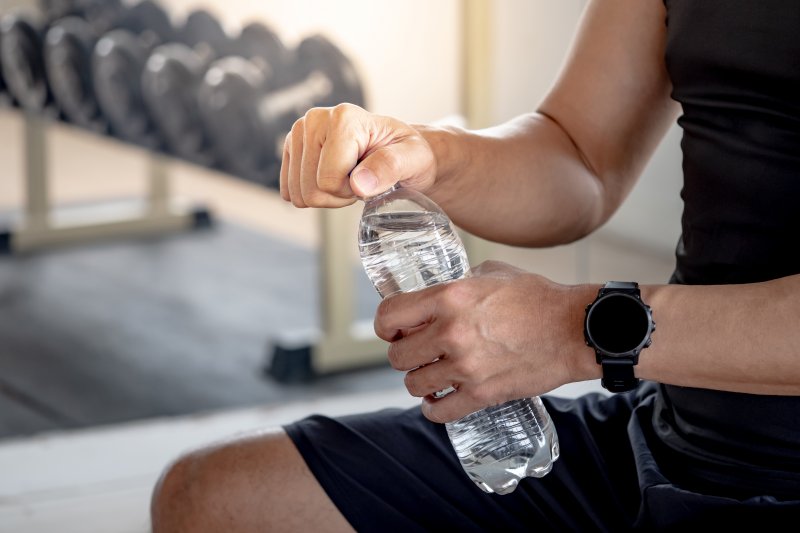
Humans and all other life on Earth depend on access to water to flourish. It’s no wonder, then, that your oral health is hugely impacted by the water you consume. Drinking the right quality water can be a big step in taking preventive measures against dental conditions like tooth decay and gum disease.
Read on to learn about three types of water and the unique properties of each that could impact your oral health.
Tap Water
The water that you receive through the faucets in your house is treated by the city you live in. There is a standard to which this water is held by the government, and strict levels of various minerals as well as pollutants must be maintained at all times.
Tap water in most developed countries is fluoridated, which means that it contains the cavity-fighting mineral known as fluoride. This chemical is absorbed in teeth and acts as a shield against acid and bacteria.
Dental caries—tooth decay—are one of the biggest oral health concerns in the world, so using the mineral in the water was a decision made for the good of public health.
Tap water is also maintained at a certain Ph level, making its acidity trend towards alkaline rather than acidic. Acidic foods and drinks erode tooth enamel, so having more alkaline water reduces tooth erosion.
Bottled Water
Tap water received a bad reputation once water began to be bottled from springs and sold. While it is true that bottled water generally has fewer contaminants, it also lacks essential minerals like fluoride.
Dentists at the Greenwich Dental Group studied nine different brands of bottled water for their Ph levels. They found that almost half of them had levels of 3 or less, making them acidic.
Bottled water can be a great source of readily available hydration, but if you rely solely on this type of water for drinking, it could leave your mouth more vulnerable to tooth decay.
Hard Water
This source of hydration is found in wells, cisterns, and in water lines around the country. Hard water contains high concentrations of magnesium and calcium. Drinking hard water can give you your recommended daily value of these minerals without looking for supplements.
Because of its high calcium content, hard water can strengthen your teeth. However, hard water also contains more minerals like iron that can leave brown stains.
From a dental point of view, drinking this type of water is safe, but you may want to increase your number of dentist visits per year to three instead of two to avoid excess tartar buildup that can result from it.
When it comes to oral health, water—no matter which of these sources it comes from, is a better alternative to sugary sodas and corn syrup-laden juices. Weigh the pros and cons of the water you drink and choose what works best for you.
About the Practice
Dr. Chung Chien Hsia is a dedicated and highly skilled dentist with certification in nitrous oxide sedation and over 300 hours of continuing education through the American Academy of Implant Dentistry. Dr. Hsia received his dental degree from the Nova Southeastern University College of Dental Medicine. With years of experience, Dr. Hsia is committed to providing top-notch dental services. To schedule an appointment, call (214) 432-1133 or visit the website for more information.




